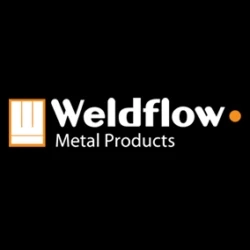The precision, biocompatibility, and safety required in medical and diagnostic equipment are paramount. From microscopic circuitry to the external body, the material of the components of the entire equipment needs to be of high quality, specifically manufactured and graded for the purpose it serves. A specified metal alloy provides a protective covering to the equipment to protect the components from damage and external pollutants, which further ensures accurate diagnosis and patient safety. The following blog discusses the benefits of sheet metal enclosures for medical diagnostic equipment in more detail.
Benefits of Using Sheet Metal Enclosures for Diagnostic Equipment
Low Investment
One of the main reasons sheet metal is used for diagnostic equipment is that it provides flexibility in design without requiring a lot of investment. From cutting and forming to welding and finishing, manufacturers can fabricate sheet metal according to the design of the diagnostic equipment without costing an arm and a leg. Whether custom sheet metal boxes or a complicated internal part, sheet metal fills the bill for easy and cost-effective processing.
The flexibility of the Material
Sheet metal comes in many alloys, each specifically manufactured for certain purposes compared to its counterpart family of plastics. From knockouts to embosses and louvers, sheet metal can be adjusted according to the design of the enclosures for diagnostic equipment.
Different compositions of elements in alloys produce different physical and chemical properties, which is not possible in other materials. The composition of elements in an alloy changes the physical properties of the alloys, including formidability, brittleness, springiness, hardness, and stainlessness. The end design looks good and professional. Further customization, such as precision sheet metal enclosures, can make the product stand out.
Durability
Sheet metal enclosures are also durable in the long term, eventually increasing the overall life span of medical and diagnostic equipment. Sheet metal is resistant to extreme temperatures and collisions and helps protect the equipment's internal components from atmospheric pollutants.
Easy Product Development
Plastic manufacturers face a lot of trouble developing molds and tools because plastic is not a very flexible product once it takes shape. Creating the final design takes a lot of time, effort, and care, whereas the medical industry depends on a fast turnaround time. Any changes in the enclosure design normally require going through all the phases again, such as designing molds, developing molds, and producing the final product.
On the other hand, the sheet metal enclosure is quite easy and flexible to develop, and it also doesn’t take as much time as the plastic enclosure to be manufactured. The medical industry also requires high accuracy and precision to perform specialized tasks. Since sheet metal is quite flexible, the material allows for more precision and accuracy when creating tools, equipment, and supplies.
Conclusion
There’s no question about the fact that medical and diagnostic equipment requires a protective covering to keep the body and components safe and secure. In this regard, sheet metal enclosures are a viable option with many incentives, such as low cost and versatility. So if you’re looking for sheet metal enclosures and appliance covers, get in touch with the representatives of Weldflow Metal Products today for your off-the-shelf or custom requirements.


